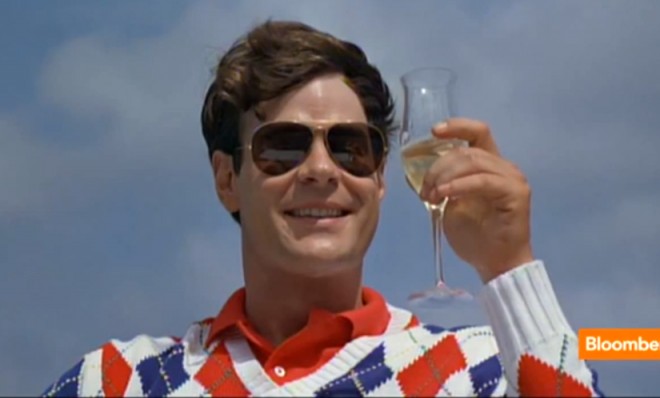WATCH: Dan Aykroyd explains how Trading Places ends
In an interview with Bloomberg Businessweek, the legendary comedian breaks down the intricacies of futures trading


A free daily email with the biggest news stories of the day – and the best features from TheWeek.com
You are now subscribed
Your newsletter sign-up was successful
Trading Places is a hilarious movie loaded with great jokes — and, unfortunately for some, a complex futures trading scheme that plays a pivotal role in the movie's climax.
Thankfully, Dan Aykroyd spoke with Bloomberg Businessweek for the film's thirtieth anniversary, and explained the chaotic closing minutes that transpire on the trading room floor.
As a refresher, Aykroyd and Eddie Murphy, the film's protagonists, uncover a plot by their nemeses, the Duke brothers, to use a leaked report about the health of Florida's orange crop to game the frozen orange juice market before the official crop report is released to the public. But the protagonists swap the real report with a phony one that claims the crops have been badly damaged, a fact that would, if true, cause the price of frozen orange juice to skyrocket.
The Week
Escape your echo chamber. Get the facts behind the news, plus analysis from multiple perspectives.

Sign up for The Week's Free Newsletters
From our morning news briefing to a weekly Good News Newsletter, get the best of The Week delivered directly to your inbox.
From our morning news briefing to a weekly Good News Newsletter, get the best of The Week delivered directly to your inbox.
"There was a short taking place in orange juice futures," Aykroyd explained. "Eddie and I were able to get information bout what the Dukes were doing, and work the other side of the trade, and basically screw up their short."
When the stock market opens, the Dukes have their flunky aggressively buy frozen OJ futures before the crop report comes out, which would inflate the price of those futures. That prompts everyone else on the trading floor to do the same.
Aykroyd and Murphy play along at first, buying up frozen OJ futures of their own. But when the price peaks, they dump everything they've got on the other traders who are still hungry for all the OJ futures they can get their hands on. Once the real crop report comes out — proving the oranges are fine, which the value of frozen OJ futures to crater — they then buy back those assets.
It's a classic example of "sell high, buy low." Aykroyd and Murphy sell all their OJ futures when the price is at its highest, and then scoop them back up for a fraction of what they had just sold them for. As a last twist, they refuse to buy back the Dukes' holdings, sticking them with an enormous loss for the day.
A free daily email with the biggest news stories of the day – and the best features from TheWeek.com
The Dukes are left millions in debt, while Aykroyd and Murphy head off on an island vacation.
Jon Terbush is an associate editor at TheWeek.com covering politics, sports, and other things he finds interesting. He has previously written for Talking Points Memo, Raw Story, and Business Insider.
-
 How the FCC’s ‘equal time’ rule works
How the FCC’s ‘equal time’ rule worksIn the Spotlight The law is at the heart of the Colbert-CBS conflict
-
 What is the endgame in the DHS shutdown?
What is the endgame in the DHS shutdown?Today’s Big Question Democrats want to rein in ICE’s immigration crackdown
-
 ‘Poor time management isn’t just an inconvenience’
‘Poor time management isn’t just an inconvenience’Instant Opinion Opinion, comment and editorials of the day
